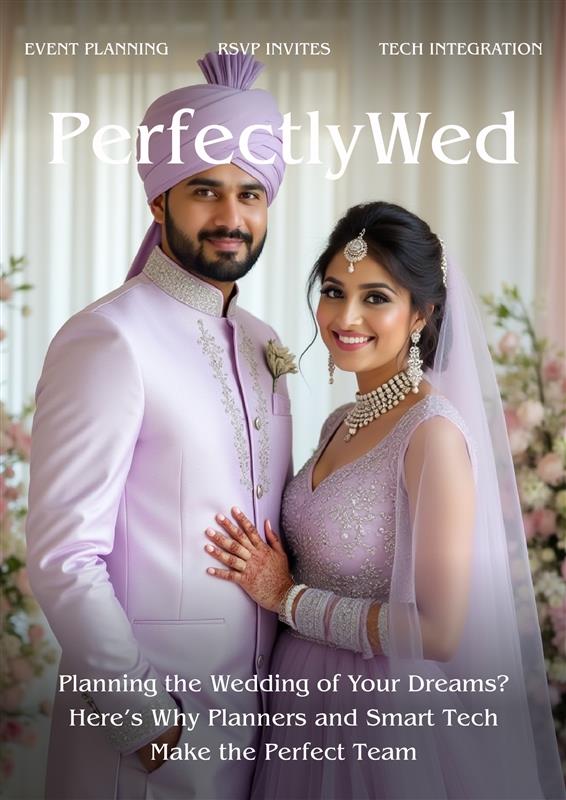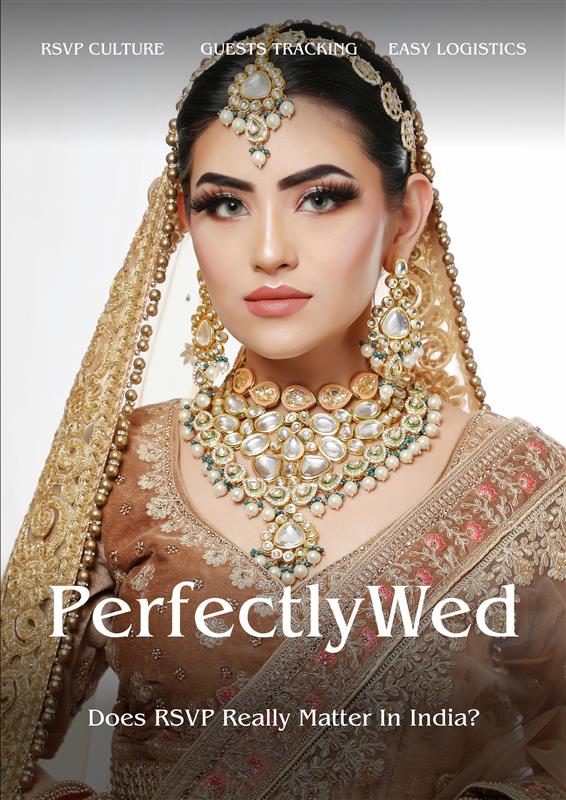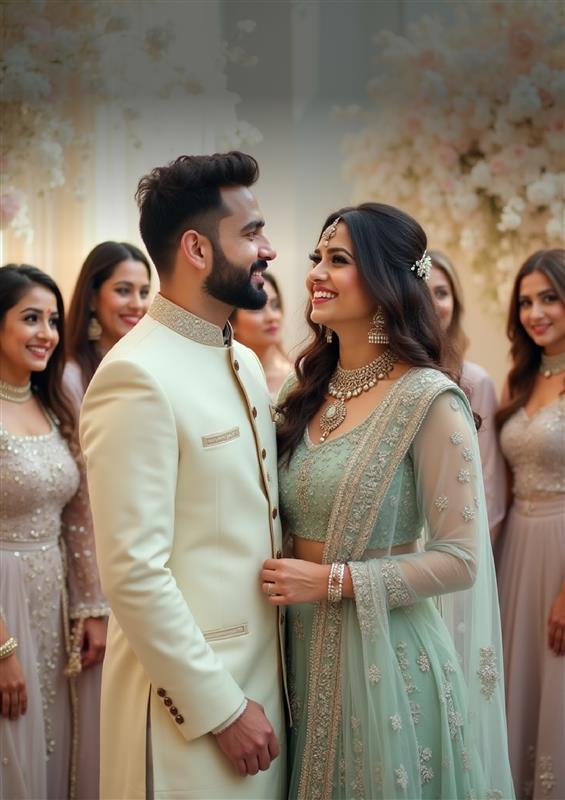
PLUS-ONE POLICY
POLITE PRECISION
RSVP CONTROL

The Plus-One Predicament: Who Gets One and Who Doesn’t?
Topics
Indian weddings are rich, vibrant, and rooted in togetherness. But that very spirit of
inclusivity often leads to one of the most quietly stressful decisions couples face: who is
allowed to bring a guest?
It starts off harmless. A friend says, “Can I bring someone along?” and you say yes. Then
more people start hinting. Suddenly, your RSVP count has jumped by 40 unexpected names
—and you’re reworking your seating, menus, and budget.
This is the plus-one predicament: do you allow everyone to bring someone, or do you draw
a line? In India, where inviting someone also means welcoming their extended circle, it’s
not a simple yes or no. It’s a ma er of culture, courtesy, and careful planning.
Why Plus-Ones Are a Bigger Deal in India
Indian weddings come with big hearts—and even bigger guest lists. But where do you draw
the line?
In Western cultures, plus-ones are often limited to long-term partners or spouses. In India,
the boundaries are blurrier.
People are expected to bring family. Some assume their partner of a few months counts as
a guest. Others think, “If my cousin is bringing her friends, then I can too.” Often, elders
extend the invitation informally on your behalf—without checking with you.
While the gesture is rooted in warmth, it puts pressure on couples managing limited
headcounts, strict venue capacities, and per-plate pricing. The idea of “just adjusting” isn’t
practical when every guest affects logistics, décor layouts, and budget.
What’s meant to be a simple invitation becomes a web of silent assumptions, emotional
negotiations, and potential misunderstandings.
How to Limit Plus-Ones Without Hurt Feelings
Why saying “no” to a plus-one doesn’t have to start a family feud.
Saying no to someone’s partner—or their assumption of a plus-one, can feel like you’re
commi ing a social crime. But not every guest needs (or is entitled to) a companion invite.
Here’s where PerfectlyWed steps in with grace.
PerfectlyWed helps you manage plus-ones effortlessly. You can invite guests individually or
as a family, allowing them to RSVP for just themselves or their household, based on what
you’ve pre-set. Whether it’s a solo invite or a group of four, guests see only their allowed
count while confirming. This avoids confusion, maintains cultural sensitivity, and ensures
your guest list stays organized—without awkward follow-ups or surprise additions on the
big day.
And if a guest really wants to request a change, they can send a message through the RSVP
system—no awkward calls, no last-minute guilt trips.
The Unspoken Expectations (And How to Navigate Them)
Guests often assume they can bring someone. Here’s how to handle that gracefully.
Sometimes, people don’t ask—they assume.
In India, it’s common for guests to believe their partner, sibling, or even best friend is
automatically welcome. Some think of it as basic hospitality. Others may feel awkward
coming alone, especially to destination weddings or city events where they don’t know
many people.
The problem arises when these silent assumptions turn into actual guests—without your
knowledge.
PerfectlyWed helps you nip this in the bud. The invitation clearly shows who’s invited and
how many spots are allocated. There’s no need to decode vague “Dear Family” cards or
guess what “+ Guest” really means. It’s personalized, controlled, and crystal clear.
Guests appreciate the clarity. And you avoid confusion, resentment, or worse, uninvited
surprise a endees on the big day.
Who Should Get a Plus-One?
A practical (and polite) guide to deciding
who gets to bring a guest.
This is the most sensitive part and there’s no
one-size-fits-all answer. But here’s a guideline
that works well for most Indian weddings:
Married couples should always be invited
together. So should engaged partners or
couples who live together. For your closest
friends in serious relationships, it’s a kind
gesture to include their partner—especially if
they’ll be traveling or won’t know many other
guests.
However, acquaintances, colleagues, or
distant family members you barely interact
with don’t necessarily need to bring
someone. If someone is single, recently
dating, or their relationship is casual or new,
a solo invite is completely acceptable.
With PerfectlyWed, you don’t need to explain
these decisions to every guest. You simply
assign their allowed guest count—and the
system does the rest.
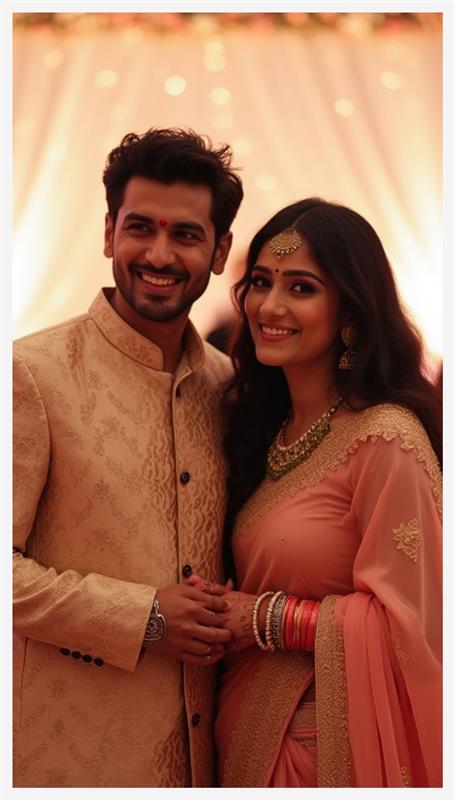
When You Say Yes… and Regret It
Why being overly polite about plus-ones
can backfire—and how to set gentle
boundaries.
There will be moments where you agree to
a plus-one just to avoid conflict. It feels
easier to say “sure” than to deal with the
potential drama.
But when that extra guest arrives, sits
through the functions without knowing
anyone, or throws off your carefully
planned seating chart, you’ll wish you’d
held your ground.
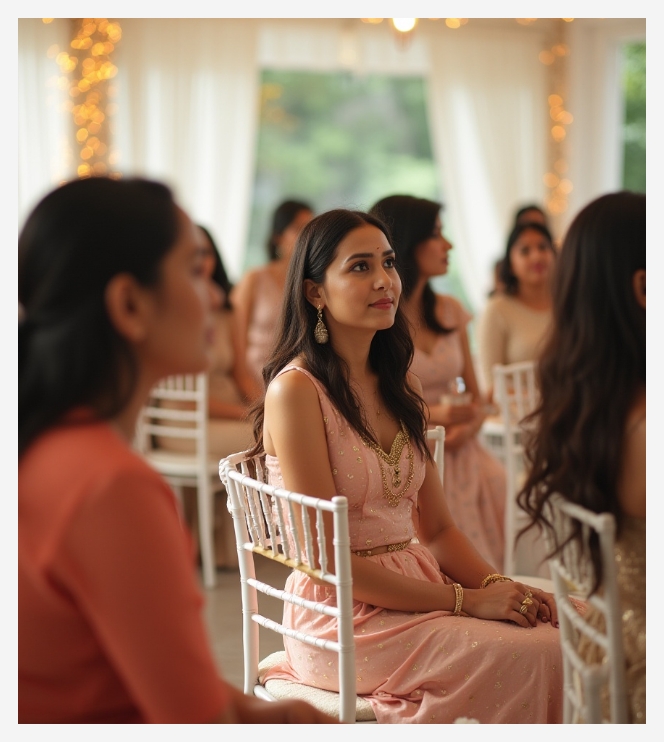
Being overly polite might seem graceful in the moment—but it often leads to regret.
Especially when your wedding is already stretched in terms of budget, food, or
accommodations.
With digital systems like PerfectlyWed, you don’t have to be the bad guy. The app
becomes the polite gatekeeper, helping you hold boundaries with minimal stress. It saves
you from dozens of awkward conversations—and helps everyone know exactly where they
stand.
Final Thoughts: It’s Not Just About a Seat—It’s About Thoughtfulness
Being selective with plus-ones isn’t rude—it’s responsible.
In today’s wedding landscape, where events are curated, budgets are tighter, and planning
is precise, being selective with plus-ones is not about being stingy. It’s about being
intentional.
You want your wedding to be full of people who know you, love you, and are genuinely
excited to be part of your celebration. Allowing too many plus-ones can dilute that energy
and sometimes even create awkward moments.
With PerfectlyWed, you’re empowered to invite guests on your terms. You choose how
many people each guest can bring. You personalize their journey. And you protect your
event from ballooning into something chaotic or impersonal.
At the end of the day, being clear and thoughtful makes your guests feel respected.
Because when people know where they stand, they show up with clarity and often, even
more gratitude.
Summary: Who’s Coming With You? Now You Decide
PerfectlyWed helps you take control of your guest list—without the stress or social
awkwardness.
Managing plus-ones at an Indian wedding can be emotionally tricky and logistically
overwhelming. But with PerfectlyWed, you get the power to decide how many guests each
invitee can bring, while keeping everything personalized and polite.
No last-minute surprises. No over-extended guest lists. Just a celebration that feels
intentional, joyful, and perfectly sized for you and your story.
Because when you plan with clarity, your guests arrive with confidence and your wedding
stays exactly how you imagined it.
